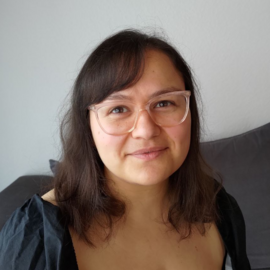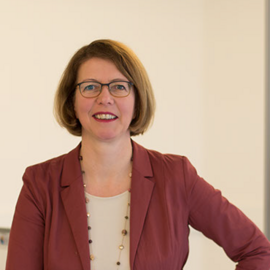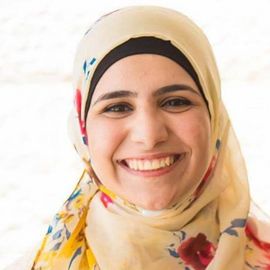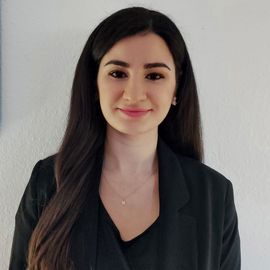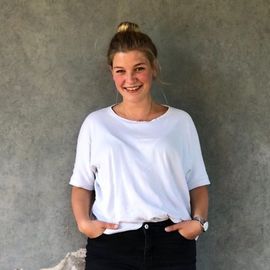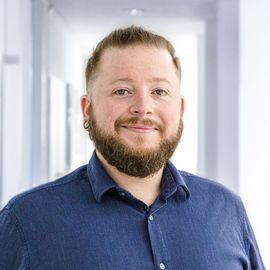Life in Academia
Organizers
Life in Academia
Overview
Life in Academia is a series of talks which engages experts and interested audiences in critical conversations around academia. The topics of these seminars offer a wide variety of impulses, ranging from academic culture, well-being, and societal norms, as well as their interplay with each other. Life in Academia amplifies and empowers diverse voices in an accessible way to celebrate progress, not perfection.
Through this series, we aim to:
- discuss whether, where, and how academia must evolve in order to be more inclusive and supportive
- dissect the impact of academia on societal norms and vice versa
- foster an inclusive and supportive environment, aiming at providing helpful insights into STEM topics
Life in Academia will resume in the winter term 2023 / 2024 (Oct 2023 - Feb 2024), twice a month on Tuesdays at 4pm CEST via Zoom. After a short introduction, the speakers may share and discuss their work, thoughts, and experiences through talks, participatory seminars, or workshops. Each session is then followed by a discussion of the content.
Life in Academia will be held in the English language as it allows for an international audience.
Past Events:
#IchBinHanna #IchBinReyhan – Academic Precarity and Current Debates - 05/06/2023
Jennifer S. Henke (Greifswald University, Germany)
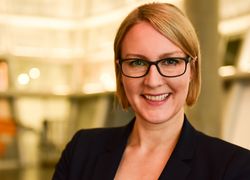
Abstract
This talk aims at an intersectional approach to academic precarity in Germany and starts with general information on the ratio of fixed-term and permanent positions in academe. It then continues with the categories gender, class and race to illustrate intersecting obstacles especially marginalised groups have to face on their path to a professorship as the almost only possibility of permanent employment. The talk ends with a reconstruction of the hashtags #IchBinHanna #IchBinReyhan on social media and a discussion of current developments and debates surrounding the unique German law regulating fixed-term contracts, 'Wissenschaftszeitvertragsgesetz', short #WissZeitVG.
Bio
Dr. Jennifer S. Henke currently holds her second position of stand-in professor for Anglophone Gender Studies at the University of Greifswald. Prior to this appointment she represented the Chair of English Literature at the University of Freiburg. From 2016-2020 she functioned as the leader of the project 'Monstrous Medicine' on an independent postdoc position at the University of Bremen. Dr. Henke received her PhD in English literature and culture for a thesis on gender and space in Shakespeare films and has also worked for and collaborated with the third-party funded international and interdisciplinary research group Fiction Meets Science (VW foundation). In 2019 and 2020 she was invited to the universities of San Luis Potosi (Mexico) and Guelph (Canada) as a visiting scholar. Dr. Henke has taught at universities in Bremen, Hamburg, San Luis Potosi, Halle, Freiburg and Greifswald, has given close to 50 talks all over the world, and has published on a variety of topics ranging from Canadian short stories, Hollywood films, science and stereotypes, drugs in/and literature and culture to cyborgs and gender. Her submitted habilitation thesis (U Bonn) is situated in the field of the medical humanities.
More
Power abuse in academia: problem description and suggestions for solutions - 30/05/2023
Jana Lasser (Graz University of Technology, Austria)
Abstract
Abuse of power in academia is a systematic problem. The multiple dependencies between precariously employed junior scientists and their supervisors open the door to the abuse of power, for example to extort extra work. In my presentation, I will discuss the different forms of power in the scientific system and illustrate their abuse with case studies. Subsequently, I will discuss proposed solutions at the individual, institutional, and system levels.
Bio
Jana Lasser is a PostDoc at the Computational Social Science lab at the Graz University of Technology. Drawing from her experience in nonlinear dynamical systems, her current research activity centres around emergent phenomena in complex social systems. She employs methods from machine learning, data science and natural language processing to understand a diverse range of topics in the field of Computational Social Science. Her current research interests include the spread of misinformation on social media platforms, the effectiveness of counterspeech strategies, and the fracturing or our society's understanding of "honesty". Next to her research she cares deeply about how the scientific community functions and dysfunctions. She tries to improve reproducibility and transparency of research by being an outspoken and active proponent of Open Science practices. Within the COST Action on Researcher Mental Health she leads the effort to conduct the largest ever survey on researcher mental health. In addition, she is a founding member of the Network Against Power Abuse in Academia, which aims to advise victims of power abuse and raise awareness for the issue.
More
Designing with menstruating bodies and doing feminist science - 23/05/2023
Nadia Campo Woytuk (KTH Royal Institute of Technology, Sweden)
Abstract
In this talk I will show my past and current design work around menstrual care, which critiques the current norms of intimate technologies and works towards reimagining more embodied and feminist interactions. I draw from the call made by feminist technoscience and feminist posthumanities to resist the dominance of vision as the main pathway towards bodily knowledge (predominantly through screen-based interactions), and instead center the sense of touch when designing these technologies. The work opens up questions on ethics, stigma, vulnerability and toxicities of working with menstruating bodies and bodily materials or fluids, such as menstrual blood or cervical mucus, in a non-medical yet academic context. I will also probe the concept of ‘feminist sensing’, discussing the challenges of the qualitative vs quantitative binary when sensing menstruating bodies, and will end with open-ended questions on how we might do feminist science.
Bio
Nadia Campo Woytuk's work focuses on critical and intersectional feminist design of technologies for menstrual health and intimate care. She has led and contributed to projects involving new media art, textiles, software art, and postcolonial computing. Her current work explores touch and sense-making of the intimate body and the social and environmental ecologies it entangles. nadiacw.com
More
Twitter @nadiacw
www.linkedin.com/in/nadiacw/
Decolonial Praxis as an Academic and Pedagogical Imperative - 09/05/2023
Rima Saini (Middlesex University London, UK)
Abstract
Dr Rima Saini will discuss her research and praxis in the decolonisation of higher education, discussing (i) the issues associated with, and impact of, racism and inequity in UK higher education, (ii) the ways in which we can and should approach decolonisation in pedagogy meaningfully - with a focus on the teaching of data collection and analysis - and (iii) the pitfalls of conflating institutional 'DEI' (Diversity, Equality and Inclusion') initiatives with 'decolonisation'.
Bio
Dr Rima Saini is a Senior Lecturer in Sociology at Middlesex University London (MDX). She is co-Chair of the MDX anti-racism network, co-Chair of Ethics in the School of Law, co-Director of the Social Policy Research Centre and the Migration, Politics and Society Research Cluster. She is also Trustee of the British Sociological Association. Her work on ethnic minority middle classness has been published in Race & Class, Sociology, Cultural Sociology and South Asian Diaspora. She has written on decolonisation of the curriculum in the Politics, Political Studies Review, Political Quarterly and the LSE Impact Blog.
More
Twitter: @RimaSaini3105
Page: https://www.mdx.ac.uk/about-us/our-people/staff-directory/profile/saini-rima
Where are we going? - 14/02/2023
Michael Chamunorwa (University of Oldenburg, Germany)
Abstract
As with many industries, Academia and the scientific world have been grappling with some of the effects of imbalances in society, among them the “great divide” between the global north and south. Despite relocating to the global north and being legally employed there, some researchers from the global south still face bureaucratic hurdles, which give them negative experiences during their careers. Michael will share his most recent experience with these seemingly invisible problems.
Bio
Michael is a researcher and PhD candidate in the Media Informatics and Multimedia Systems Group at the University of Oldenburg. He has experience co-designing digital systems for cultural heritage preservation with marginalised communities in North Western Namibia. His current research interests are technology and service design, technologies to support placemaking and rich interactive materials for current and future smart homes. Michael attempts to apply lessons from years of co-designing cultural heritage-related tools in the global south plus working resource-constrained environments to technology design contexts inherent in the global north, ensuring technology is accessible and practical.
Making it Weird – (Neuro)divergent Traversations through Academia - 07/02/2023
Katta Spiel (Technical University Vienna, Austria)
Abstract
Being an 'unlikely' person in academia comes with curious instances and encounters. I have a PhD – and a so called learning disability. In this session, I will share some of my strategies to conduct academic work and will be in conversation with you on how to navigate the systems around us differently.
Bio
I research marginalised perspectives on technology. My work informs design and engineering in critical ways to support the development of technologies that account for the diverse realities they operate in. My research is situated at the intersection of Computer Science, Design and Cultural Studies. Drawing on methods from (Critical) Participatory Design and Action Research, I collaborate with neurodivergent and/or nonbinary peers in conducting explorations of novel potentials for designs, methodological contributions to Human-Computer Interaction and innovative technological artefacts.
The Toxic Culture of Rejection in Computer Science - 24/01/2023
Prof. Edward A. Lee (UC Berkeley, California, USA)
Abstract
This talk exposes the negative consequences of the dominant publications culture in Computer Science, where highly "selective" conferences dominate over journals as the preferred venues in which to publish. Poor quality reviews, an over-emphasis on "novelty", and a tendency to reject papers that are easy to read (for "obviousness"), combined with very low acceptance rates, contribute to a culture that does not serve the community well. Well-intentioned practices, such as double-blind reviews, exacerbate the problems. I will discuss possible modifications to the practices that may help.
Bio
Edward A. Lee has been working on embedded software systems for 40 years, and after detours through Yale, MIT, and Bell Labs, landed at Berkeley, where he is now Professor of the Graduate School in Electrical Engineering and Computer Science. His research is focused on cyber-physical systems, where he strives to make composable, secure, and verifiable timing sensitive systems. Recently, he has branched out and published two books on the philosophy of technology, Plato and the Nerd (2017) and The Coevolution (2020).
What is your good life in academia? - 06/12/2022
Prof. Dr. Geraldine Fitzpatrick (Technical University Wien, Austria)
Abstract
Despite what we might believe by looking at 'everyone else' we deem more successful than us, and by what is implied by academic performance metrics, there is no one-size-fits-all when it comes to life in academia. We will start a conversation together about how to better understand who you are and what is important to you, and how to use this as a basis for making your choices and crafting your version of a good life in academia.
Bio
Geraldine Fitzpatrick is Professor of Technology Design and Assessment and leads the Human Computer Interaction Group in the Informatics Faculty at TU Wien. Her research is focussed on socio-technical and people-centred perspectives of computing. She is an ACM Distinguished Scientist, an IFIP Fellow, and recipient of a SIGCHI Lifetime Service Award and an IFIP TC-13 Pioneer Award. She has a diverse background, with a PhD in CS&EE (Uni of Queensland), an MSc in Applied Positive/Coaching Psychology (UEL), international experience in academia and industry in Austria, England and Australia, and a prior career as a nurse/midwife. She is passionate about how we can craft better academic cultures, hosts the Changing Academic Life podcast series and delivers academic career development and leadership development consultancy, training and coaching internationally.
Sublimating passion for music into sonification research - 22/11/2022
Prof. Myounghoon "Philart" Jeon (Virginia Tech, USA)
Abstract
This talk is about the dreary story of failure of the little music boy. His longest dream in his life was to be a singer (K-pop star!). Unfortunately, he did not make it. Instead, he worked as a sound designer for all kinds of electronic products at the company. But he wanted to come back to musical life. So, he studied film scoring to be a music director for film. But instead of beginning a new film scoring startup, he decided to study sonification (making sound from the data), which is still what he’s doing. So, this talk is about sublimating passion for music into sonification and music research.
Bio
Dr. Myounghoon Jeon, “Philart” is an Associate Professor of Industrial and Systems Engineering and Computer Science at Virginia Tech and director of the Mind Music Machine Lab. He received his MS and PhD in Engineering Psychology and Human-Computer Interaction from Georgia Tech. His research focuses on emotions and sound in the areas of Automotive User Experiences, Assistive Robotics, and Arts in XR Environments. He served as an immediate former president of the International Community for Auditory Display (ICAD). Philart means “love art”.
Research(er) assessment: hit the reset button - 15/11/2022
Prof. David Moher (School of Epidemiology and Public Health, uOttawa; Director, Centre for Journalology, Ottawa Hospital Research Institute, Canada)
Abstract
Hiring, promotion, and tenure tend to be based on metrics that are not evidence-based and promote perverse incentives. Contributions to research assessment should be more evidence-based and incorporate values that promote professional communities and improvements in society.
Bio
Dr. David Moher is a senior scientist, clinical epidemiology program, Ottawa Hospital Research Institute, where he directs the centre for journalology (i.e., publication science). Dr. Moher is also Professor, School of Epidemiology and Public Health, Faculty of Medicine, University of Ottawa. Dr. Moher holds an MSc in epidemiology and PhD in clinical epidemiology and biostatistics. Dr. Moher is a fellow of the Royal Society of Canada and a fellow of the Canadian Academy of Health Sciences.
Research and Activism - 01/11/2022
Débora de Castro Leal (University of Siegen, Germany)
Abstract
Building on my own experiences, and practices (and based on the paper written with the colleagues Angelika Strohmayer and Max Krüger), in this talk I advocate for the possibility of an activist-academic practice, I outline possible ways forward and formulate questions we need to answer for HCI to contribute to a more just world. Through the experiences and reflections of an activist becoming academic and an academic becoming an activist, we outline these difficulties such as (1) the risk of perpetuating violence, oppression and exploitation when working with marginalised communities, (2) the reception of activist-academic work within our academic communities, and (3) problems of social justice that exist within our academic communities.
Bio
Debora has worked in partnership with organic producers in the Brazilian Amazon region at Boa Vista of Acara since 2015. Before that, she worked as UX professional for 15 years. She did her Master dissertation on “Regenerative Dialogue in Communities in the Amazon region” at Schumacher College (UK).
Currently, she is lecturer in Human Computer Interaction and she is in the last year of her PhD at the University of Siegen (Germany). In her research, she is interested in how communities experience and deal with economic and technological pressures in areas of post-conflict and social instability, especially communities in the Brazilian and Colombian Amazon rainforest. She is also part of the steering committee of International Development Innovation Network (IDIN/MIT), with which she has organised design summits around the globe since 2013.
Ethics and Reflexivity in Computing - 25/10/2022
Prof. Bernd Stahl (University of Nottingham, UK)
Abstract
The ever-growing relevance and social impact of computing technologies have led to a general acceptance that ethical issues linked to computing warrant attention. The most obvious example of this is the current discussion of the ethics of AI. This discourse looks at specific concerns arising from novel characteristics of current machine learning, such as questions of opacity, explainability, bias or transparency. It also covers broader societal concerns including the future of work, changing nature of warfare, economic and political power distribution or environmental impact of computing. In this talk I will touch on the question of the role of the researcher in computing and distributions of responsibility for possible and actual consequences of computing technology. Drawing on my own background and experience, I will introduce the idea of reflexivity as crucial for recognising and dealing with ethical concerns. Reflexivity is one of the cornerstones of the concept of responsible research and innovation which aims to ensure that both process and products of research and innovation are desirable, acceptable and sustainability. I will draw on examples of some of the projects I have been involved in to show how reflexivity can be built into project work and will discuss the advantages and limitations of these approaches. Overall, the talk aims to show that ethical issues are difficult to deal with but that that researchers arguably have an obligation to engage with them nevertheless.
organic
Bernd Carsten Stahl is Professor of Critical Research in Technology at the School of Computer Science of the University of Nottingham and former Director of the Center for Computing and Social Responsibility at De Montfort University, Leicester, UK. His interests cover philosophical issues arising from the intersections of business, technology, and information. This includes ethical questions of current and emerging ICTs, critical approaches to information systems and issues related to responsible research and innovation.
Resources: slides
Burnout in Academia - 14/06/2022
Dr. Maryam Aldossari (College of Business and Social Science, Aston Business School, Birmingham, UK), Dr. Sara Chaudhry (School of Business, Economics and Informatics, Birkbeck University of London, London, UK)
Abstract:
In this talk we will consider the current conceptualisation of burnout and and then explore its practical relevance in the context of a post-pandemic world and the ever-changing education sector and academic career path. The overall aim is to bring together a range of voices to discuss our personal, and collective, experiences of emotional exhaustion, feelings of depersonalisation and diminished professional efficacy in both work and life/family spheres.
Bio:
Sara Chaudhry is a Senior Lecturer (Associate Professor) in Management at Birkbeck, University of London, UK. Her research contributes to two key research streams: i) diversity and employment experiences (across varied international contexts and employee groups) and ii) the changing employment relationship (i.e. processes of marketisation, individualisation & flexibilization). She has published in world-leading (ABS 4*/3*) journals and since the pandemic has become interested both personally and theoretically in the experiences of burnout.
Maryam Aldossari is a Senior Lecturer in Human Resource Management at Aston Business School. Her research interests cover amongst other topics, equality and workforce diversity, women’s employment, international assignment management, and psychological contract. She has published in a wide range of outlets, including international journals (such as Work, Employment and Society, International Journal of Human Resource Management), special issues and edited books.
Additional resources: Aldossari, M. and Chaudhry, S. (2021), Women and burnout in the context of a pandemic. Gender Work Organ, 28: 826-834. doi.org/10.1111/gwao.12567
Time to Say Good-bye to our Heroes? Creating the Academia we Want and Need - 31/05/2022
Prof. Dr. Lindy Elkins-Tanton (School Of Earth and Space Exploration, Arizona State University, USA)
Abstract
Our current research approach in academia can be called the “hero model,” where professors in sub-disciplines control a pyramid of resources—mini-fiefdoms that end up vying for attention, students, and budget. This model has tended to disincentivize collaboration, encourage cutthroat competition for resources, and in the worst cases, facilitate bullying and harassment. Without collaboration, research tends away from interdisciplinary work, where many of the true breakthroughs in science and technology emerge. The research community needs to move toward a more team-based model, with multidisciplinary groups addressing big challenges in science and society. To solve big problems such as climate change, we need multiple skillsets and voices.
Bio
Lindy Elkins-Tanton is a scientist studying the formation and evolution of rocky planets. She also works on creation of effective interdisciplinary teams for maximizing discovery, and student-centered learning and the reformation of education for the Information Age. Elkins-Tanton is the Principal Investigator of the NASA Psyche mission, ASU Vice President for the Interplanetary Initiative, and co-founder of Beagle Learning, a tech company led by CEO Turner Bohlen, training and measuring problem-solving and critical thinking. She received her B.S., M.S., and Ph.D. from MIT. She was a researcher at Brown University, faculty at MIT, and a director at the Carnegie Institution for Science before moving to a directorship at Arizona State University. She has led four field expeditions in Siberia. She has been the Astor Fellow at Oxford University, is a fellow of the American Geophysical Union and of the American Mineralogical Society, and a member of the American Academy of Arts & Sciences and the National Academy of Sciences. Asteroid (8252) Elkins-Tanton is named for her.
For more, check out Lindy's blog post on this topic: issues.org/say-goodbye-hero-model-science-elkins-tanton/
Decoloniality and Digital Innovation - 24/05/2022
Prof. Dr. Nicola Bidwell (Aalborg University and International University of Management, Namibia)
Abstract
Technology production in Africa is entangled in a mesh of postcolonial relations. Asymmetric relationships between centres of colonial power and the periphery govern the movement of people, activities, concepts and things, including technological and socio-technical systems. Colonialism also imposes a paradigm for technology production that performs in the identity of innovation, by determining how innovation is embodied and enacted. This talk introduces themes about decoloniality emerging from my experiences living, teaching and researching in Africa over the last 15 years. I especially draw on two recent cases (in digital mental health and community networks), to suggest ways that academic researchers can support decoloniality in computer science.
Cases:
Magoro. K.D., Bidwell N.J., (2022). Land, Letṧema and Leola: Digital Transformation on a Rural Community’s own Terms. In 'Innovation Practices for Digital Transformation in the Global South'. Springer. In Press.
SR Pendse et al (2022). From Treat-ment to Healing: Envisioning a Decolonial Digital Mental Health. CHI Conference on Human Factors in Computing Systems (CHI’22). In Press.
Bio
Nic has researched at the intersection of Human-Computer Interaction (HCI) and social informatics since 2001, focusing on contexts that are marginalized by techno-geopolitics. Her rich international research collaborations include industry and interdisciplinary university groups, and national and local NGOs. Nic has served on high profile cross-sector and intergovernmental panels, keynoted at academic conferences (e.g., Participatory Design and Mobile HCI), received awards for contributions to social and economic development and her work has informed policy debate. She initiated the first panel on Indigenous Led Digital Enterprise, when she hosted OzCHI in Cairns, and co-founded the ACM African HCI Conference. She is an associate editor of ACM TOCHI and AI & Society journals, and Chair of the Sustainability Committee for the Executive Committee of ACM’s Special Interest Group in HCI (SIGCHI). Nic has held positions in departments of computing, informatics and IT in Australian, European and African universities, with teaching and graduate supervision focused on responsible HCI, research and engineering. She is Associate Professor and Research Group Head of Techno-Anthropology and Participation in Aalborg University’s Technical Faculty of IT and Design, and adjunct Professor at the International University of Management, Namibia.
To learn more about Nic and her work, check out her google scholar page and her post calling for a Sustainability Committee for SIGCHI.
A few thoughts on work-life balance - 03/05/2022
Prof. Dr. Wim Vanderbauwhede (School of Computing Science, University of Glasgow, Scotland)
Abstract
Many people working academia find it difficult to achieve or maintain a good work-life balance. In this talk I would like to share some of my thoughts on the reasons for this, the consequences of working too much, the benefits of having the right balance, and ways of achieving a better balance. The talk is very much based on my personal views and experiences, but I hope there is some interest in sharing these.
Bio
Prof Dr Wim Vanderbauwhede has been a lecturer & researcher in the School of Computing Science at the University of Glasgow since April 2004. Previously, he was a Research Assistant at Strathclyde University. He received a PhD in Electrotechnical Engineering from the University of Gent, Belgium in 1996. His research has resulted in over 150 refereed conference and journal papers. Before returning to academic research, Dr. Vanderbauwhede worked as a Mixed-mode Design Engineer and Senior Technology R&D Engineer for Alcatel Microelectronics.
To learn more about Wim and his work, have a look at: dcs.gla.ac.uk/~wim//
Resources: slides of the presentation
Let's Talk about the Mental Health of PhD Students and Early Career Researchers - 05/04/2022
Dr. Patrizia Di Campli San Vito (School of Computing Science, University of Glasgow, Scotland)
Abstracts
Doing a PhD is a highly rewarding and mind opening experience. But it is also challenging, with many different demands putting high pressure on students. These have become worse since the start of the pandemic, as postgraduate students have faced additional financial and health related concerns. Early Career Researchers share some of these challenges, but also face very specific demands set by starting their career in academia.
This talk is going to discuss these challenges and their influence on mental health of PhD students and Early Career Researchers. We will talk about an example of a student-led initiative to support PhD students and their mental health: how it started, how it changed during the pandemic and what the ongoing struggles are.
Bio
Dr Patrizia Di Campli San Vito is a Research Associate in Human Computer Interaction in the School of Computing Science at the University of Glasgow, after having finished her PhD in the same institution and field in 2021. She obtained her BSc and MSc in Media Informatics at the University of Ulm in Germany prior to moving to Scotland.
During her PhD Patrizia founded the PhD Support Group within her department and organized it for two years. She was then instrumental in turning the group into the SICSA PhD Support Network (https://www.sicsa.ac.uk/news-events/sicsa-phd-peer-support-group/), which has been run by volunteers ever since, aided by the Scottish Informatics and Computing Science Alliance (SICSA). Both initiatives provided easily accessed peer drop in sessions for PhD students where they can discuss any difficulties around mental health or their studies with empathic, trained peers supporting them and listening non-judgmental. Patrizia has been outspoken on behalf of PhD students in general and their mental health in particular in the past and plans to conduct research in that area.
Feedback & Code of Conduct
If you have any questions, concerns, or ideas for future topics, please do not hesitate to voice them with the organizers via this form.
Please have a look at our Code of Conduct.
Join our mailing list
Life in Academia is open to all people interested in the topics. We hold two meet ups a month during each semester, with information sessions and talks from leaders in academia and industry, as well as providing a supportive network for new PhD students and early career researchers. Please add yourself to our mailing list to be updated on all our activities, or follow the members of Life in Academia on social media to stay up to date on our events.




